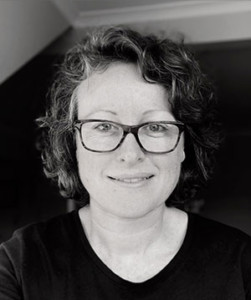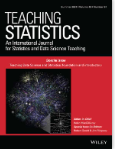Dr Kym Fry’s teaching and research is focused on a student centred, inquiry approach in primary mathematics education that helps learners develop problem solving and computational skills needed for a future of complexity and ambiguity.
 Kym’s transition from classroom teacher to researcher has been driven by the desire to support processes that engage students more meaningfully and purposefully, so learners may see the importance and relevance of mathematics in their life and careers.
Kym’s transition from classroom teacher to researcher has been driven by the desire to support processes that engage students more meaningfully and purposefully, so learners may see the importance and relevance of mathematics in their life and careers.
Kym’s PhD and post-doctoral fellowship looked at the application of messy mathematics in the classroom – where students engaged in solving the kinds of problems that exist in real life and do not have neat solutions.
Part of the impetus for this work was observing that assessments used in the classroom were not aligning with inquiry teaching and learning processes and further research was an avenue to address this.
Kym says:
“I noticed that assessment in mathematics wasn’t really capturing the rich learning from inquiry pedagogies in teaching and learning. Aligning assessment with an inquiry approach has been one aspect of my research.”
Educational practices with a problem solving and student centred approach aim to make teaching, learning and assessment more meaningful to learners, to help them see the world around them differently.
Kym says:
“I continued working in classrooms and participating in research on developing classroom culture in those inquiry classrooms, that was supporting positive dispositions, because it deepened learning, and it was purposeful. It was a contrast from kids saying, ‘why do I have to do this?’”
Inquiry– based pedagogies are ambitious approaches when compared with a traditional school lens, which is teacher centred. Shifting to student– centred experiences that are messy, ambiguous and do not have neat solution pathways can be challenging for teachers in terms of relinquishing control. Instead, teachers have to guide students towards a mathematical goal.
These pedagogies take a long term rather than short term approach to learning and development.
Kym says:
“Making rich connections and exploring unknown problems is time consuming, but also an investment in skill sets for the future.”
Her post-doctoral research has focused on mathematical modelling in STEM texts. Part of this work is using authentic STEM scenarios that involve messy mathematics, such as measuring crop production yields from leaf sizes. The inquiry approach asks learners to solve problems in areas they do not know about and, and in contrast to explicit instruction, the classroom teacher does not tell students the answer or solution process. Inquiry ‘opens up’ mathematics to all students in the classroom to promote diversity in solutions processes and creative thinking. .
This is important work in changing attitudes towards mathematics education, that deepens learning and makes it purposeful. Inquiry pedagogies focus more on the process, they are rich, inter-disciplinary mathematics experiences that students can draw on over time.
Kym says:
“Interestingly, we’ve found that students who might struggle in the classroom seem to have success through inquiry pedagogy. Higher achieving students seemed to struggle in this area, as it is a problem-solving approach, beyond recall.”
Kym presented findings from research conducted this year with Professor Lyn English (QUT) and Associate Professor Katie Makar (UQ) at the Mathematics Education Research Group of Australasia (MERGA) conference, Mathematical confluences and Journeys (Launceston). The conference paper was entitled How big is a leaf? Using cognitive tuning to explore a teacher’s communication processes to elicit children’s emerging ideas about data. This work looks closely at ways teachers can support students’ problem-solving processes when solving complex problems that are authentic.
On the application and importance of this work, Kym says:
“These processes may not have immediate impacts, but they are investments in skill sets for the future. The future has messy problems, and we need learners with 21st century problem solving skills to address these issues. Really, it’s about engaging students to be interested, active mathematics learners who see it relevant to their planet, their future, their society.”
Read more about Kym’s fascinating research in this area on Griffith Experts and below.

How could we teach data science in primary school?



